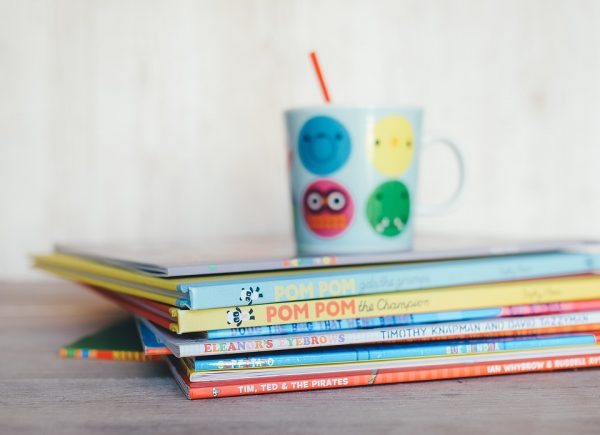Working with kids has exposed us to the many challenges they face on the journey to learning, so much so that we do all we can to ensure that all of our activities promote smarter kids in every way possible.
Growing up, we see our kids eager to read something, especially anything animated and colorful. But as they grow, this enthusiasm kind of wanes off and we begin to wonder.
What happened to my child?
At the book club I run for children, we discover that most kids are just intimidated by their peers who are more articulate, who are pretty fast or have just got a lot of swag that they refrain from even trying to compete with them.
This is what we do – we allow them give it a try, no matter what. We allow them to take it slow, and to read one word at a time. This allows them to assimilate what they’re reading and in turn, they don’t have to mumble up the words or jump over them.
“It doesn’t matter how fast others read. You will catch up. Take it one word at a time.”
And for the fast readers? We know that’s mostly what they are – fast. And so, at the kid’s club, we read with notepads and pens in hand. We ensure that every new word is written down and that we make sense of every plot, every character, every word. The art of reading is not just about swag and eloquence, it’s about comprehension.
Your child cannot learn to read – and love it – if you do not create an atmosphere of learning around them. We stock up their play areas growing up with toys and games, sometimes with creative, colorful children’s books but as they get older, we forget about the books. We replace the loving gestures with techy stuff – which are great – but we must never leave out the need to create an atmosphere of continuous learning for our kids, no matter their age. Allow us to ask:
- How often do you read?
- Do you buy books for the home or take time out to review family-friendly books on general topics during your family hangouts or fun day out?
We love to encourage parents to allow their kids read out loud to them, to visitors or anyone who cares to listen. Allow your tender-aged kids to play with animated books that barely even have words so that they can build their creativity quotient by creating their own stories out of the images.
As they grow older, allow them to read out loud to you. This comes easily when they’re constantly watching or listening to you read out loud to them. Be patient enough to listen to them read. Slowly, but steadily.
Growing up, our parents or teachers used the read-out-loud tactic only when they wanted to punish us, thereby doing the exact opposite of building our confidence. We need to refrain from this. When you notice that this tactic causes your child to withdraw in public, please, work with them individually until they develop the confidence to read aloud.
Allow your child to make a choice about what he/she wants to read, at least, until reading no longer becomes a chore or a dreaded activity.
At the club, we encourage visiting book stores as some of them allow the kids to actually read through books they intend to buy and in turn drop books they are not interested in. Set goals for your kids, yes; tell them you want them to read a book, story or article a day. But allow them to make a choice. It most likely will be a good choice if you surround them with learning resources that are positive.
Finding the balance
We find this big break in our kids’ reading process, and the entire joy that comes with it between elementary years and beyond due to a lot of factors. We begin to have higher expectations for our kids’ comprehension process as they grow older. We ask for reviews and opinions as they read, but the older they get, the more technical we want their notes to be. They could afford to play as babies, but from the middle grade, they get tested for comprehensions, literature, language skills and so on. This puts a lot of pressure on them. When what you initially loved becomes a task, we begin to hear them spell the word – b-o-r-i-n-g.
As kids, they read to enjoy narratives. But as they grow, they read for fact building, research, examinations and so on. As youngsters, they are exposed to mostly stories or novels. But later on, broader genres make comprehension a lot tougher. On a general note, we must build up our kids to enjoy reading for leisure and that includes reading anything.
The earlier they start, the better for everyone.
Sit with your kids for a short time every day and read a book about something they’re interested in. We know this is pretty difficult, what, with our busy schedules these days? Still, we must do what we can to create bonding and learning time. Don’t expect them to read to themselves. Show them how interesting reading can be so that they want to try on their own.
Do not stop encouraging them. Cheer them on as they get better and charge them to do more when they’re lagging. Create a conducive atmosphere for leisure-reading outside of the four walls of a classroom from time to time; be it creative book clubs, book parties or hangouts.
Pay attention to your child. Their reluctance to reading might just be dyslexia, light sensitivity or another medical problem. The more attentive we are, the better it is to deal with the problem.
About the author:
Amy Afebuame recently kicked off My Writing Corner for Kids and Teens, a platform set to help kids in building and harnessing a reading and writing culture, to encourage self-expression, research, instill confidence and positive exposure in youths. This will help in the development of kids writing and reading abilities, whilst catching them young.
You can contact Amy at [email protected]; also find her on Facebook, Instagram and Twitter. Click here to visit her website.


